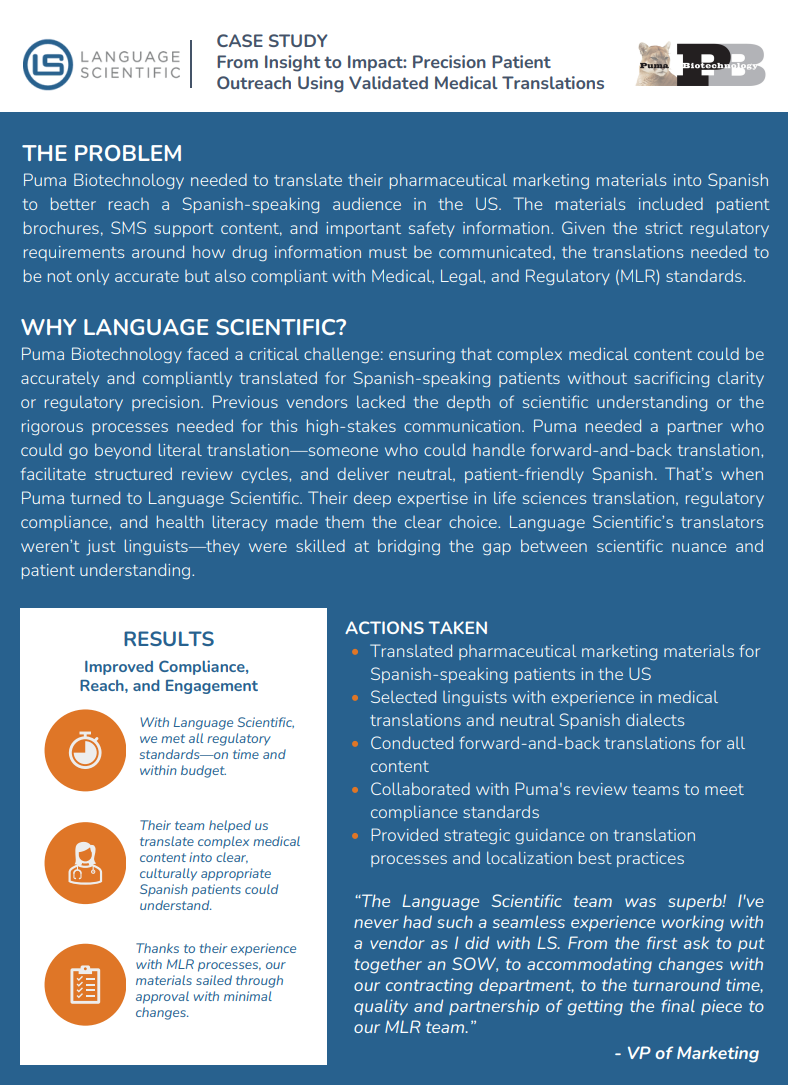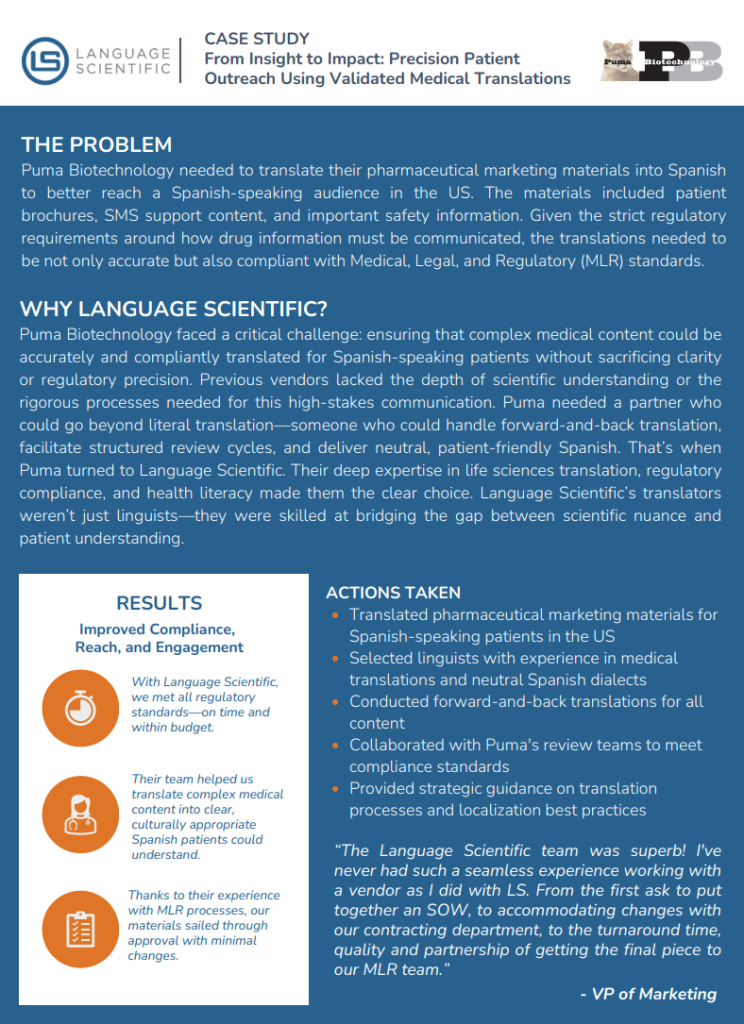
The term “Technical Translation” refers to the translation of documents targeting specialist audiences instead of the general public. For example, an installation and maintenance manual for a naval radar is intended to be understood by electrical engineers, clinical trial adverse events report is targeted at doctors. Someone without proper education and technical training is not likely to read and understand these types of documents.
At Language Scientific, we hold to the principle:
If You Don’t Understand It, You Cannot Translate It!
From the time it was founded by a group of multilingual scientists, engineers and doctors in 1991, Language Scientific focused exclusively on the translation of engineering, medical and other technical documents. If a document is intended to be understood only by technical specialists, it must be translated by linguists with similar educational and professional backgrounds as the target audience.
The more sophisticated and specialized technology becomes, the more translators of technical documents must adapt by developing complex and specialized knowledge. Ambiguities and nuances inherent in language become even more pronounced when the translations involve complex scientific language and medical terminology that the translator doesn’t understand.
Simply knowing the language is no longer sufficient—technical documents require translation by technical translators who fully understand the content of the documents. In order to assure total accuracy in translation of a patent, an operations manual, a specification sheet or any other technical document, the translator must know the subject matter at the same level as the audience that will read those documents.
Without this key knowledge, major concepts may be confused or mistaken, even if every translated word is correct. The consequences of even one of these small mistakes can be severe.
To put it simply: no. Language contains many ambiguities. Merely knowing what the words mean won’t make a difference if the context isn’t understood.
Suppose in the process of translating a patent application for an experimental drug, the translator encounters the common neuroscience term “potassium channel blocker”.
Should the translator interpret the phrase to mean a potassium substance that blocks channels, or a blocker of potassium channels? English allows for this sort of ambiguity, but many other languages do not. The translator must make a choice of which definition to use. The wrong choice may result in the rejection of the patent, at a cost of millions of dollars. Without an understanding of neurobiology, the general linguist has a 50% chance of getting it wrong. A neurobiologist knows that only the second interpretation can be correct.
Language Scientific, Inc.® is a privately held corporation headquartered in Needham, Massachusetts.
Language Scientific, 100 Crescent Rd Needham, MA 02494
+1 617-621-0940
info@languagescientific.com



See how Puma Biotechnology improved compliance, engagement, and clarity using validated Spanish medical translations.